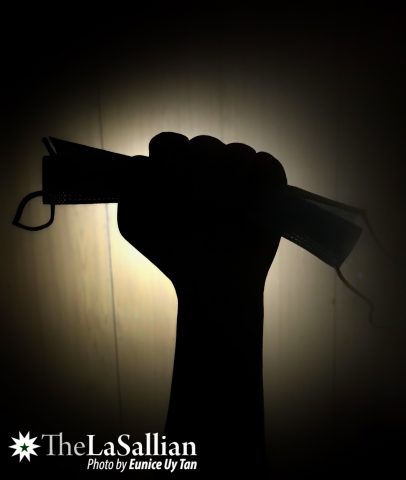
The DLSU Jesse M. Robredo Institute of Governance (JRIG), together with INCITEGov and Asia Democracy Research Network, organized Knowledge Forum: Democracy in Pandemic Times, via Zoom and Facebook Live last August 12. The forum tackled issues concerning the state of democracy and governance as election season nears.
Backsliding of a democracy
As President Rodrigo Duterte enters the last full year of his presidency, many are left to ponder on whether his populist and authoritarian policies have pushed the country forward or left it worse off. Dr. Francisco Magno, a full professor from the Political Science Department, noted that prior to Duterte taking office, the Philippines had regressed on various metrics on civil liberties and rights, from press freedom to human rights, evidencing a “backsliding” of democracy in the country.
Meanwhile, Dr. Maria Ela Atienza, a full professor from the Political Science Department of University of the Philippines Diliman, asserted that the “strong man” personality of Duterte is reflected in the government’s response to the pandemic—brash, forceful measures focused on punishing dissent and non-compliance rather than scientific and medical solutions.
Atienza said that the administration’s antagonism toward criticism and opposing views is marked not only by the increased role of the police and military in implementing its policies but also by how it discourages “the narrative focusing on the efforts of citizens and groups to develop mechanisms for active citizenry and active participatory governance on the ground.”
Preparing for the ‘long haul’
Despite celebrating economic growth of 11.8 percent in the second quarter of this year, Dr. Alvin Ang, professor of Economics at Ateneo de Manila University, warned that the figure is not a signal of recovery as the Philippines has yet to catch up to its pre-pandemic levels. The same period saw an increase in total employment but primarily through wholesale and retail trade, which added 259,000 workers during lax lockdown protocols between May and June 2021, while many other industries remain closed.
The lack of support in the agriculture sector, said Ang, significantly inhibits food security and, ultimately, growth. “Prolonged COVID, which is most likely, will require us to produce our own food,” he asserted, emphasizing the urgency to revive the country’s declining agriculture.
On public debt, he stated that the question lies not in whether the country has the capacity to borrow but in how the funds are being used, saying that the government should direct its funds toward public health, food security, and adapting the workforce to digitalization.
“Economic recovery is a moving target,” Ang said, highlighting that recovery involves being on par with the rest of the world. As election season nears, candidates should focus not on “getting out” of the pandemic but on preparing for the “long haul.”
A future determined by vote
“There is a specter of health threats all across the election cycle,” said DLSU JRIG Director Dr. Ador Torneo, as he expressed that the pandemic is a threat to public participation in the upcoming national and local elections.
Torneo stressed that the pandemic, if not addressed by May 2022, will largely reduce voter turnout due to health and safety concerns in registering for and conducting the elections on-site. Politicking of vaccines and aid may also prolong the pandemic and increase the economic hardships of Filipinos, making voters “susceptible to vote-buying.”
Successfully seeing the upcoming elections through will depend on the cooperation of its stakeholders, Torneo maintained. “It spells the difference between [the elections] being a superspreader event or it being a safe and relatively smooth activity.”
